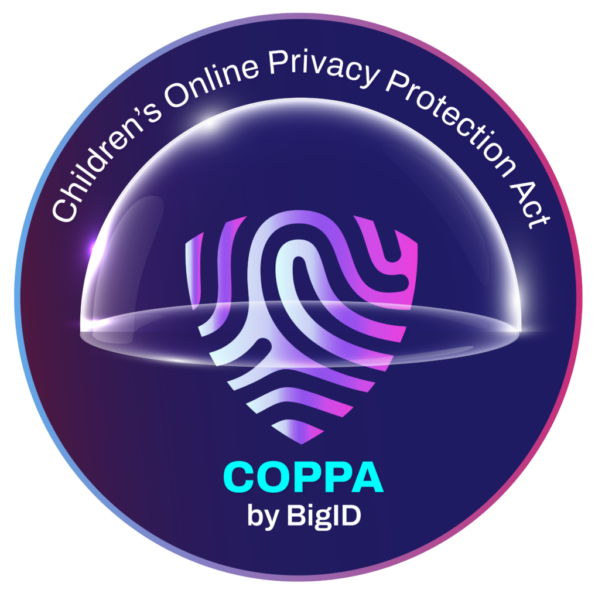Brief Information about COPPA (Children’s Online Privacy Protection Act)
The Children’s Online Privacy Protection Act (COPPA) is a United States federal law enacted to protect the online privacy of children under the age of 13. COPPA imposes certain requirements on operators of websites or online services directed to children or those that knowingly collect personal information from children.
Detailed Information about COPPA (Children’s Online Privacy Protection Act)
COPPA was passed by the U.S. Congress in 1998 and is enforced by the Federal Trade Commission (FTC). The primary goal of COPPA is to give parents control over what information websites and online services collect from their children. The law requires these entities to obtain verifiable parental consent before collecting, using, or disclosing personal information from children under 13.
Under COPPA, personal information includes details such as full name, home address, email address, telephone number, geolocation data, and any other information that could be used to identify or contact a child online. The law also mandates that covered websites and services post clear privacy policies outlining their data collection practices.
Detailed Analysis of Key Features of COPPA (Children’s Online Privacy Protection Act)
Key features of COPPA include:
- Parental Consent: Websites and online services must obtain verifiable parental consent before collecting personal information from children under 13.
- Privacy Policies: Covered entities must maintain clear and comprehensive privacy policies explaining their data collection practices.
- Limited Collection: Operators can only collect information that is reasonably necessary for the operation of the website or service.
- Data Security: COPPA requires entities to take reasonable measures to protect the confidentiality, security, and integrity of children’s personal information.
- Right to Review and Delete: Parents have the right to review the personal information collected from their children and request its deletion.
Types of COPPA (Children’s Online Privacy Protection Act)
| Type of COPPA | Description |
|---|---|
| Standard COPPA | Applies to websites and online services directed to children under 13 or those that knowingly collect personal information from children. |
| COPPA Safe Harbor Program | Allows industry groups and organizations to develop self-regulatory guidelines for compliance with COPPA. Entities that adhere to these guidelines may be deemed in compliance with COPPA by the FTC. |
Ways to Use COPPA (Children’s Online Privacy Protection Act)
- Implementing age gates to prevent children under 13 from accessing certain online content without parental consent.
- Obtaining verifiable parental consent through methods such as email confirmation or postal mail.
- Providing parents with tools to review and delete their child’s personal information stored by websites or online services.
- Educating parents and children about online privacy rights and best practices for safe internet usage.
Problems and Solutions with COPPA (Children’s Online Privacy Protection Act)
Problems:
- Compliance Challenges: Some websites and online services struggle to comply with COPPA’s requirements due to the complexities of obtaining parental consent.
- Enforcement Issues: The FTC faces challenges in monitoring and enforcing COPPA compliance across the vast landscape of online platforms.
- Evolving Technologies: The rise of new technologies and digital platforms presents ongoing challenges for COPPA enforcement and adaptation.
Solutions:
- Enhanced Education and Awareness: Increased efforts to educate website operators, parents, and children about COPPA’s requirements and implications.
- Technological Solutions: Development of innovative technologies and tools to facilitate COPPA compliance, such as age verification systems and parental control features.
- Collaboration and Enforcement: Strengthening collaboration between industry stakeholders, government agencies, and advocacy groups to ensure effective enforcement of COPPA.
Main Characteristics and Comparisons with Similar Terms
| Term | Description |
|---|---|
| COPPA (Children’s Online Privacy Protection Act) | Federal law in the United States aimed at protecting the online privacy of children under 13. |
| GDPR (General Data Protection Regulation) | European Union regulation governing data protection and privacy for all individuals within the EU and the European Economic Area (EEA). |
| FERPA (Family Educational Rights and Privacy Act) | U.S. federal law that protects the privacy of student education records. |
| CCPA (California Consumer Privacy Act) | California state law that enhances privacy rights and consumer protection for residents of California. |
Perspectives and Technologies of the Future Related to COPPA
As technology continues to evolve, the future of COPPA may involve:
- Greater emphasis on parental control features and tools to empower parents to manage their children’s online privacy.
- Collaboration between governments, industry stakeholders, and advocacy groups to address emerging challenges and adapt COPPA to new technologies.
- Integration of artificial intelligence and machine learning algorithms to enhance COPPA compliance and enforcement efforts.
VPN and COPPA (Children’s Online Privacy Protection Act)
VPN (Virtual Private Network) services can complement COPPA compliance efforts by:
- Providing an additional layer of privacy and security for children’s online activities by encrypting internet traffic.
- Allowing parents to control and monitor their children’s online interactions by routing their internet traffic through a secure VPN server.
- Assisting website operators in ensuring compliance with COPPA by offering secure communication channels and data encryption.
Links to Resources for More Information about COPPA
- Federal Trade Commission (FTC): COPPA Compliance Guidance for Businesses
- Online Trust Alliance (OTA): COPPA Best Practices
- Common Sense Media: Guide to COPPA for Parents
- Future of Privacy Forum (FPF): COPPA Resources and Updates
This comprehensive guide provides insights into the Children’s Online Privacy Protection Act (COPPA), its key features, implementation methods, challenges, and future prospects. For further information and resources, refer to the provided links.


